Finita la Comedia: The European Union in Trump’s hands Why ideological rigidity left Brussels cornered?
This week’s trip of a group of European leaders across the Atlantic, the disclosure of the details of the EU’s economic capitulation to the United States, as well as Moscow’s attempts to reconcile with Washington, prompt reflection on the current global balance of power. Which players are truly manoeuvring on the world chessboard, and which stand proudly on the field but have already lost their freedom of action—or are about to be exchanged? Considering that this concerns both global powers and blocs, these shifts are also important for the further development of the situation in the South Caucasus.
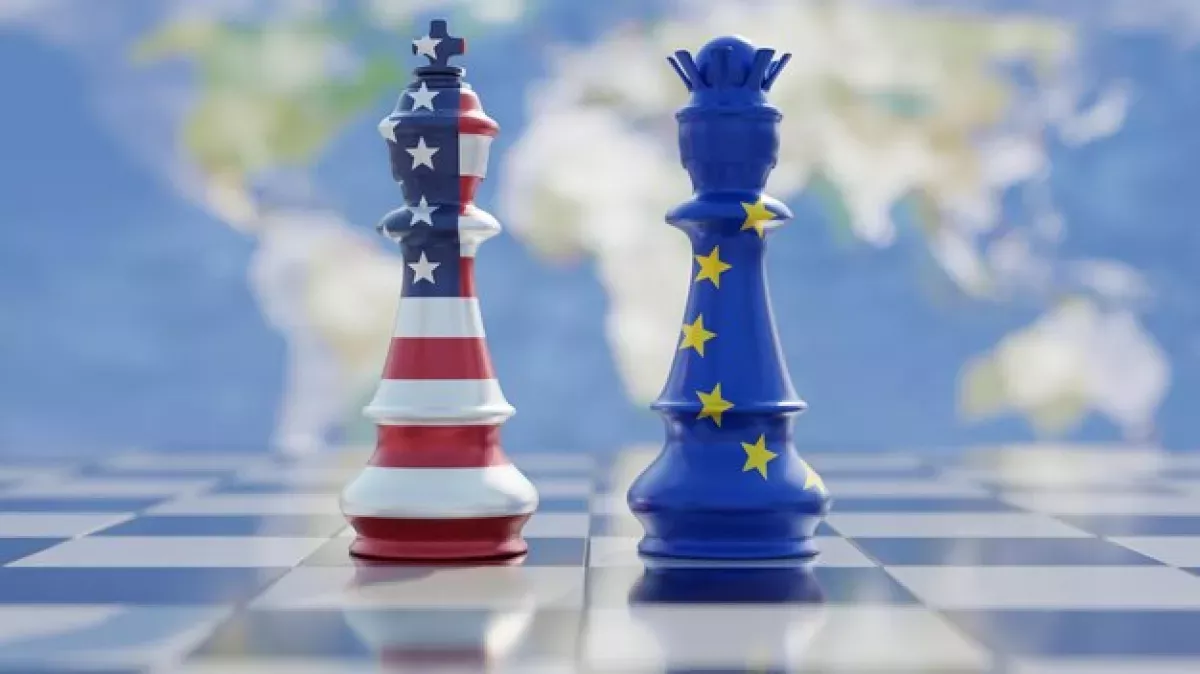
A strange summit in Washington
The appearance on Monday, August 18, of a group of European leaders at negotiations in Washington seemed extravagant. Representatives of several EU countries, the bloc’s leadership, and the UK’s leader arrived not for a multilateral summit. Officially, the trip was described as showing support for Ukrainian President Zelensky in his talks with Trump. History has never seen such a brazenly paternalistic approach and doubt cast on the competence of the leader of an independent state.
The explanation that European leaders were sincerely supporting the Ukrainian leadership—which had previously found itself in an awkward situation at the White House—falls apart immediately. The Europeans had plenty of opportunities to provide such support, and they never used them.
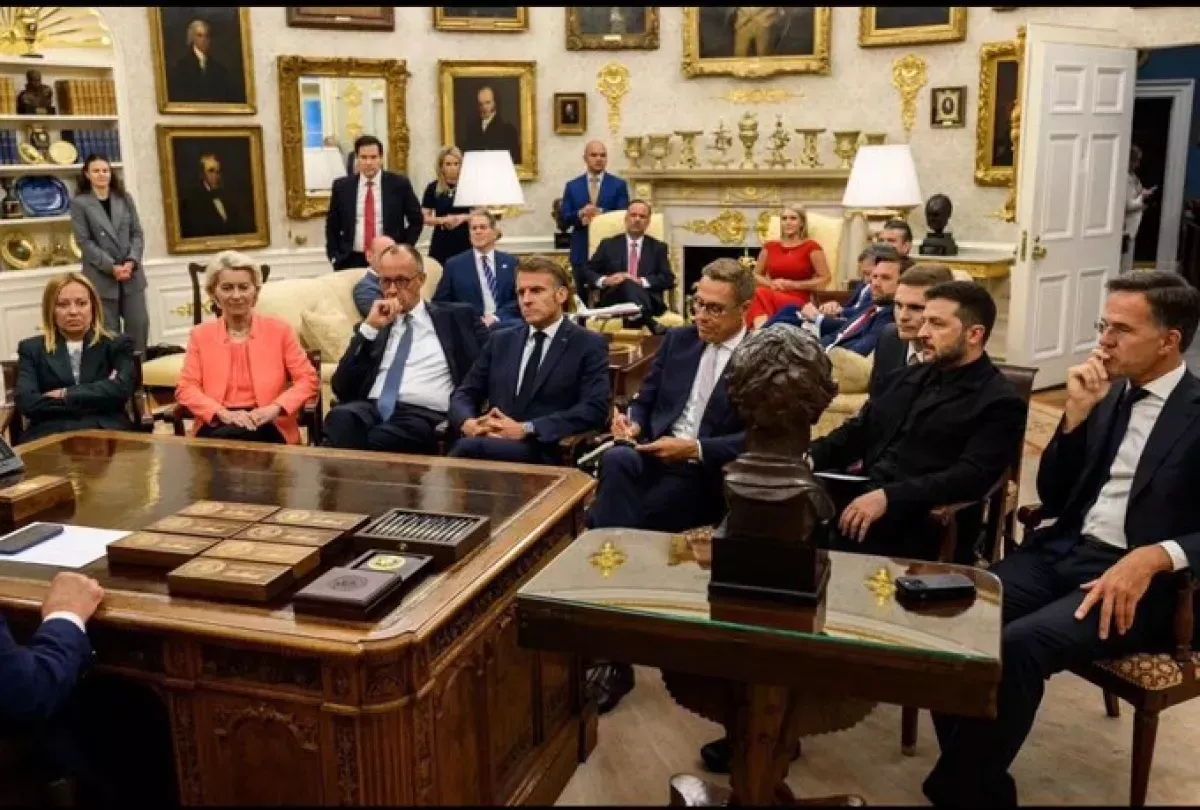
As Clausewitz noted, “War does not arise suddenly; its preparation cannot be the work of a single moment.” The same is true for the Russian-Ukrainian war. Before Russia’s invasion, the European Union had about ten years to actually assist its allies in Kyiv. The Russian-Ukrainian confrontation had been escalating gradually. They could, for instance, have admitted Ukraine into the EU or armed it.
After 2004, the EU admitted “whomever and whenever it deemed necessary,” but no such exception was made for Kyiv. The track record on military assistance is no better. Even after the war began, Kyiv was supplied mostly with outdated equipment. Last year, the wealthiest European countries—Denmark, the Netherlands, and Germany—offered Kyiv a hundred Leopards that couldn’t even fire. The Ukrainians refused. Overall, there is little reason to believe in the sincerity of these leaders’ support.
An alternative version is that the Europeans went to Washington to continue tugging at the geopolitical rope with the U.S., firmly telling the American leader that they would not allow him to negotiate with Putin on Ukraine. Brussels tried to create that impression, but the photographs of the leaders with meek expressions ruined it. Nevertheless, on Tuesday, August 19, unofficial information appeared in the media that a dozen European countries—primarily France and the UK—might send their troops to Ukraine “to provide security guarantees.” It seemed that the EU had genuinely begun to play its own game.
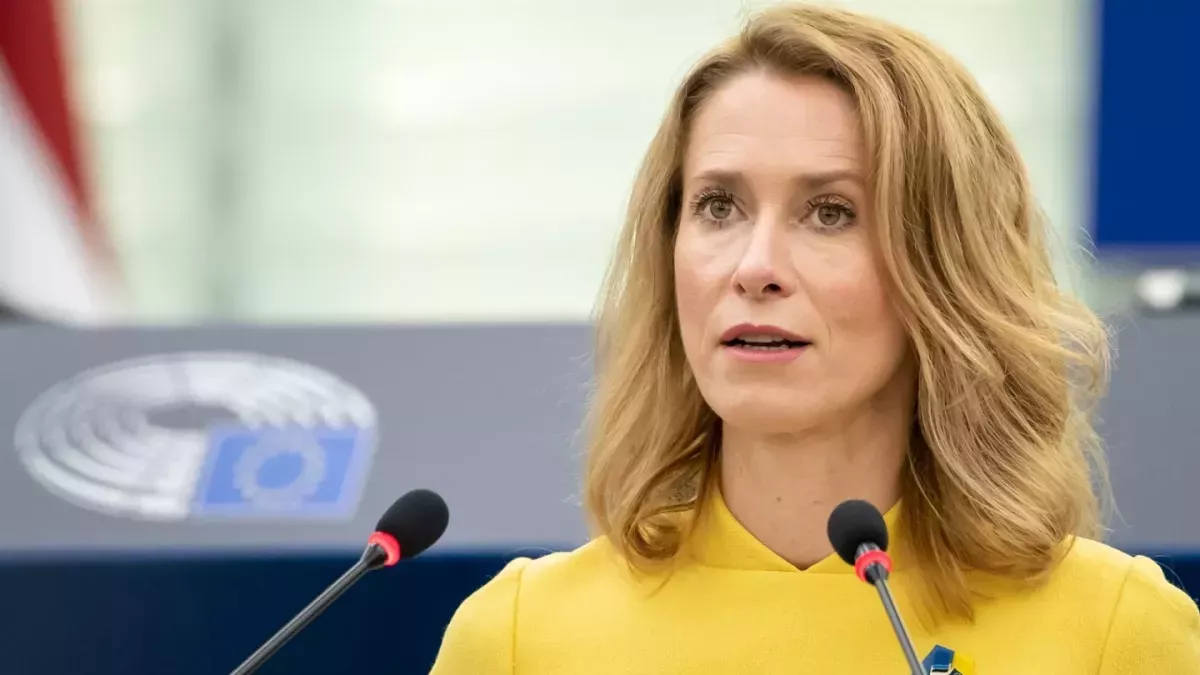
Two days ago, the head of the European Union’s diplomatic service, Kaja Kallas, stated in an interview with the BBC that Ukraine should not cede territory to Russia under any future agreement, and that “the strongest security guarantee is a strong Ukrainian army.” All of this sounds admirable, but it is demagogic in light of Europe’s actual actions so far. Kallas then “wavered” when it came to the EU’s current and future steps. She admitted that there are no “concrete steps” to deter Russia and once again spoke of a “coalition of the willing.”
Kallas herself has no connection to this coalition: after all, it is not some global structure involving the EU. No—the idea is that instead of the EU, another group of states would act, which can be called a “new Entente.” Since last year, Paris and London have been trying to form it, with the involvement of Warsaw and Berlin.
However, Kallas explicitly said that the participants of the “coalition of the willing” must decide for themselves what guarantees they will provide to Kyiv and how to act. She washed her hands in the name of the European Union. And once again the question arises—what, then, were the European leaders and the EU’s top officials doing at the White House on Monday?
Envoys to Trump
Even before Kallas’s interview, familiar rumours resurfaced among observers following the Washington talks—namely, that the Europeans, even together with the UK, cannot take any independent action on Ukraine without the U.S.
On Wednesday, August 20, even Politico—usually sympathetic to the Euro-liberal elites—doubted the possibility of sending European troops to Ukraine. It cited an insider from the Brussels bureaucracy: “Given how politically weak Macron and Starmer are, it’s hard to even imagine how this plan could be implemented. These are difficult times, also economically.”
Moreover, the problems are not limited to the French president and the British prime minister. In Germany—a key country for such an operation—the situation is no better.
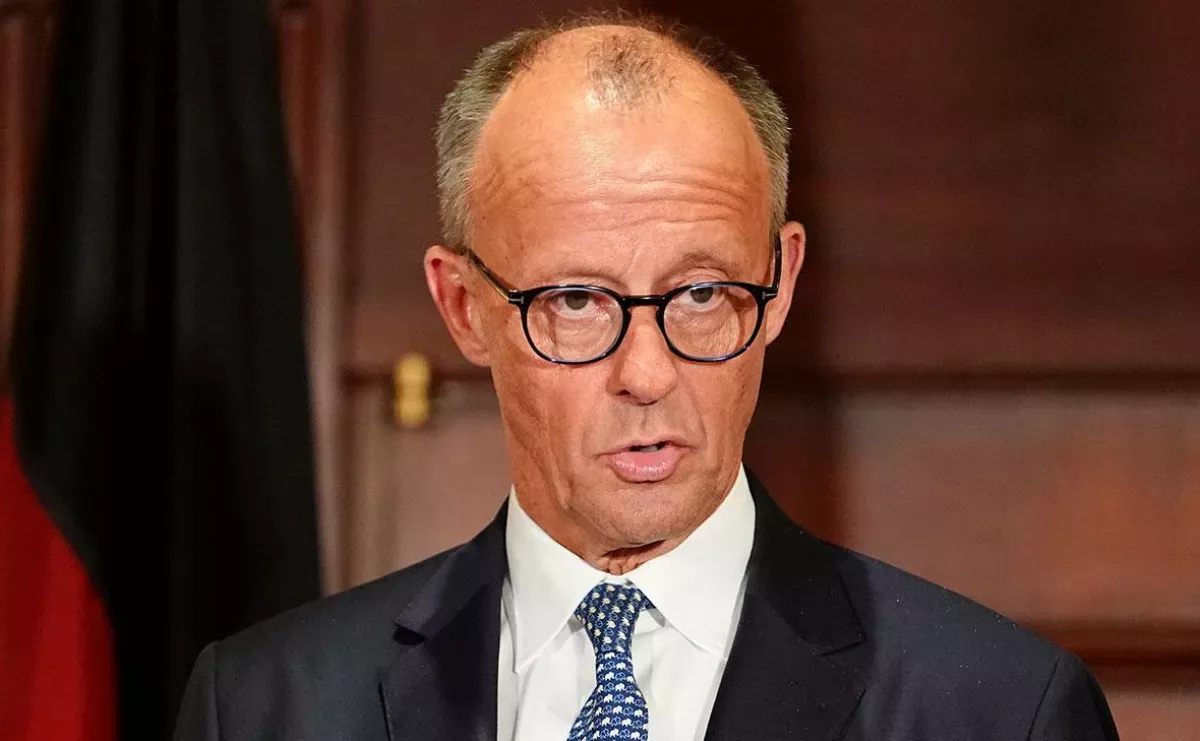
German Chancellor Friedrich Merz, while in Washington, promised to deploy German troops on Ukrainian territory. This is not surprising: in his inaugural speech, he declared that he would make the German army “the strongest army in Europe,” and earlier he had succeeded in lifting restrictions on the growth of public debt to attract credit for military needs.
However, sending German troops to Ukraine requires parliamentary approval. Immediately after Merz’s statement, it became clear that all parties in the German parliament oppose such a decision. Even influential circles within the ruling coalition and Merz’s own party are against it. The only exception is the Greens, with their “trivial” rating. In other words, it is unlikely that such a decision can be pushed through.
New elections won’t help either. Even worse, they could destabilise Germany’s political system. Merz’s own approval rating fell from 36% in June to the current 30% after his first hundred days in office. Meanwhile, the rating of his main opponents—the opposition party Alternative for Germany (AfD)—is rising. By mid-August, it reached 26%, while the popularity of Merz’s Christian Democrats dropped to 24%. In response, the authorities deployed state security agencies, and immediately after news of AfD’s rising rating, the party’s regional organisation in Brandenburg was declared extremist.
Thus, the authorities continue to pressure AfD, which was recognized as extremist at the federal level back in May. These steps are laying the groundwork for its ban, a highly risky move given AfD’s mass support. In such a situation, Berlin has little bandwidth for Eastern Europe. And even Napoleon in 1812 only marched on Russia after mobilising Germans for the campaign—they made up at least a quarter of his army.
The EU and Russia compete for Trump’s attention
Thus, in Washington, the Europeans could not argue with Trump. They went there to ask him not to abandon them in a position where they had virtually no moves left in the game they had set up in Eastern Europe. Their ideologically rigid stance had pushed all their pieces into the corners of the global chessboard. It was precisely the doctrinaire platform of the Euro-liberals that deprived them of the ability to take strategically effective steps, even in their confrontation with Russia, which has been the essence of EU foreign policy in recent years.
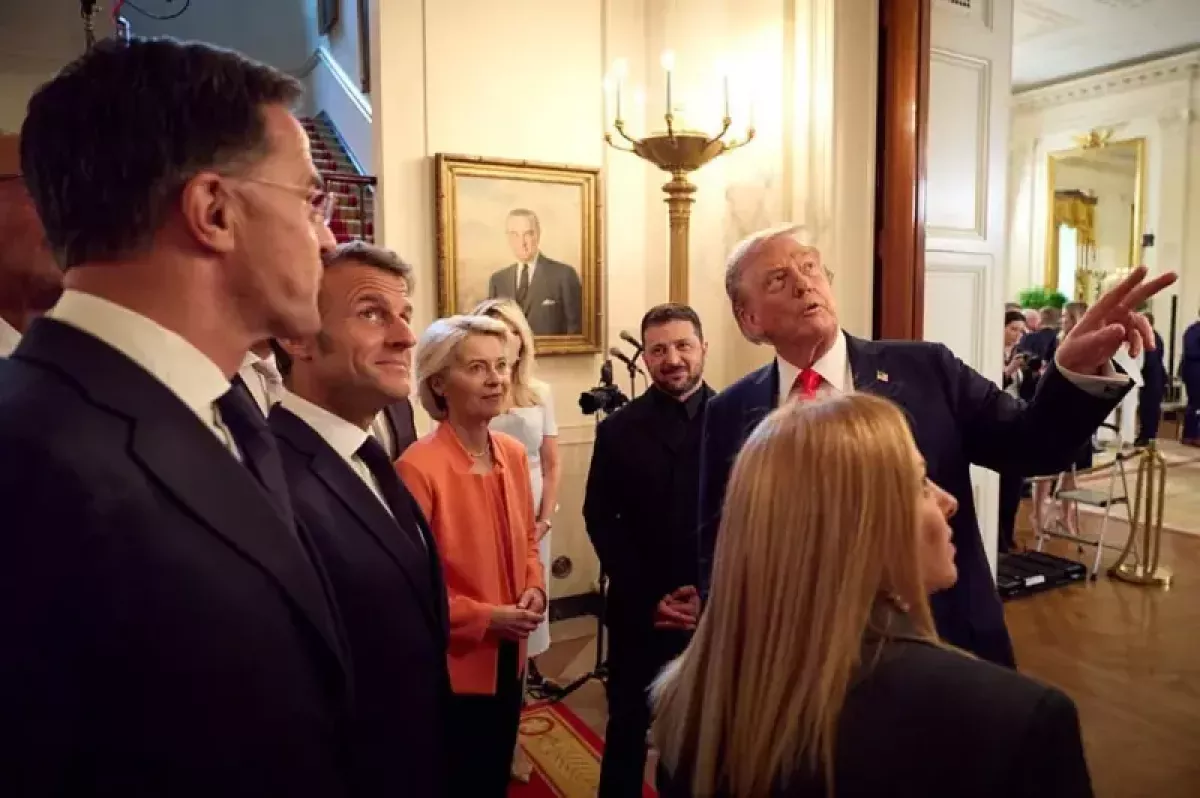
There were countless options. For example, engaging with China, Russia’s most important partner. And what about China! In fact, the EU had cut off its own avenues for maneuver even toward Belarus, Russia’s closest ally.
By refusing to boycott this country—which had always kept itself distant from Russia’s war in Ukraine—he could have secured safety for Ukraine from the north, freed up Polish forces, and made it more difficult for Russia to continue the war. After all, the conflict began once Russian troops gained access to Belarusian territory after 2020. But such tasks are not for Euro-liberals. The people in power in European capitals are of a different mold, hiding their inability for strategic thinking behind liberal dogmatism.
These party appointees, now in power, play simple-minded games. For example, they imagine that Trump can be “bought” with certain concessions and that he will act on the EU’s side against Russia. Unlike most Euro-liberal leaders, however, Trump has extensive experience in strategic planning and leadership, proven over decades of business and political activity. They are simply incapable of manipulating him due to the difference in weight classes.
On Thursday, August 21, some details of the July trade agreement between the EU and the U.S. were finally published, showing that Trump had already secured huge concessions from European leaders without giving them anything coherent in return.
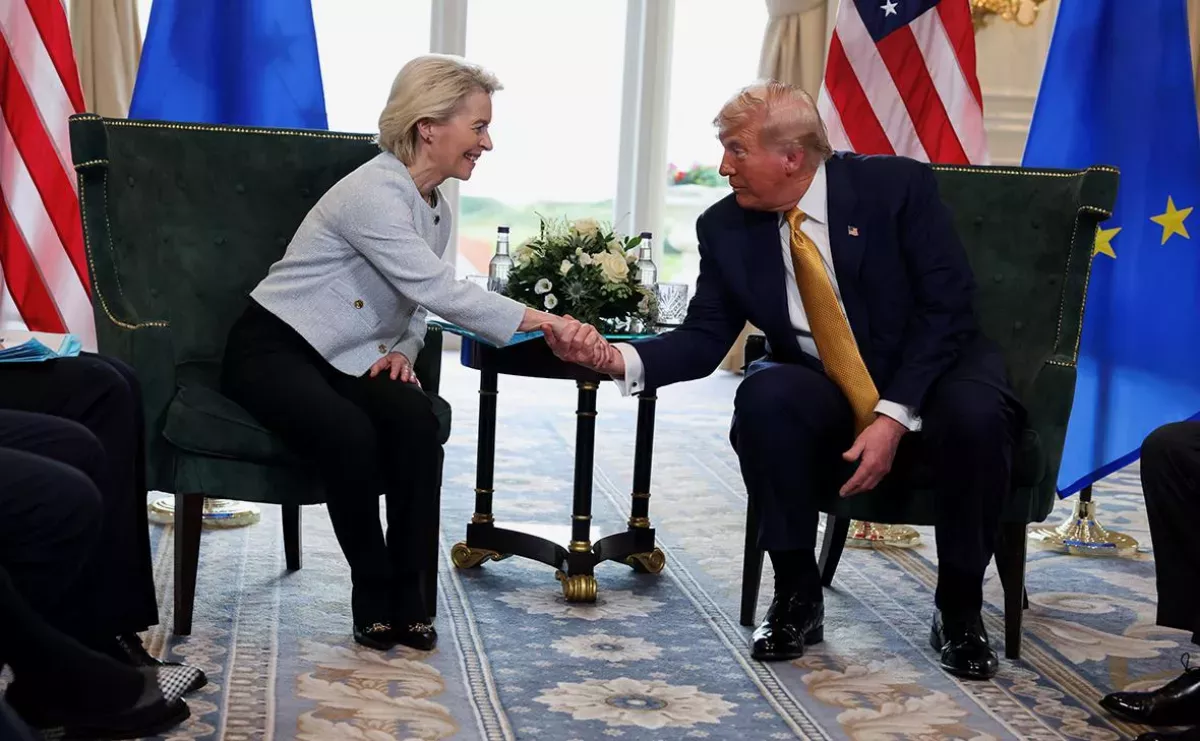
No one is rushing to disclose all the details of the agreement concluded between European Commission President Ursula von der Leyen and President Trump. However, new data published on Thursday confirms suspicions of the EU’s capitulation.
Brussels has committed to removing all tariffs on American industrial goods imported into EU countries and to giving priority access to American agricultural products and seafood on EU markets. At the same time, Brussels accepted the 15% U.S. tariffs on European imports to the United States. The EU also agreed to participate in America’s campaign against Chinese industry—formalised as a joint defence of markets from “excess capacities” (a euphemism for Chinese competitors).
This comes in addition to previously announced EU commitments regarding massive purchases of American weapons, AI chips, LNG, oil, nuclear fuel (in quantities exceeding the EU’s actual needs), and much more.
To understand just how cornered the EU feels and why it is making such concessions, note this: not only China, but even India confidently refused similar “deals.” It is hardly surprising, as they have not lost their freedom of manoeuvre in international politics, unlike the EU. A couple of weeks ago, China and the U.S. extended their trade truce for another three months and continue negotiations. China did not make concessions, and Trump is not only willing to keep talking with Beijing, but has also refrained from imposing punitive tariffs on China. He clearly considers the Chinese a more serious partner than the Euro-liberals.
Meanwhile, the latter went all in, giving the U.S. everything they could. The American leadership, demonstrating business acumen, took what was offered and formalised it on paper. Then, again showing strategic vision, it went on Friday to negotiate with its second partner, eager to align with the Americans—that is, Russia.
Seeing this, European leaders had no choice but to rush to Washington on Monday, remind Trump of the concessions they had made, and beg for at least some assistance on the Ukrainian issue. Meanwhile, this part of the EU–U.S. deal likely was never formalised. It may have existed only in the imagination of the European elites.
In summary: the U.S. is successfully exploiting the strategic anxieties of both the European Union and Russia, obtaining concessions from each. By relying on military solutions to disputes in Eastern Europe, Moscow, Kyiv, and Brussels have cornered themselves. No one currently has a military solution: as calculations from recent days show, since the fall of 2022, Russian forces have captured less than 1% of Ukrainian territory. Kyiv has also failed to conduct successful counteroffensives in that time.
At the same time, none of the parties has even attempted political solutions to escape the deadlock. In fact, no one offers even a minimally acceptable prospect to opponents or the population in controlled territories. All prefer to seize land without people, forcing the latter to flee.
The same strategic weakness is observed on the international stage. Neither Russia, Ukraine, nor Europe has been capable of bold strategic moves that would allow them to break the current stalemate. The entire strategy of Euro-liberals, Kyiv, and Moscow now hinges on Washington. These players remain on the global chessboard only nominally: they block each other and are incapable of more.
Global politics and the future of the world are now being shaped by other powers—for example, the U.S. and China.
The same is true for the South Caucasus. In this situation, Azerbaijan’s regional policy—benefiting from improved relations with the U.S. under Trump and stable cooperation with China—gains new opportunities. This primarily concerns regional integration and the restoration of the historical unity of the South Caucasus.








